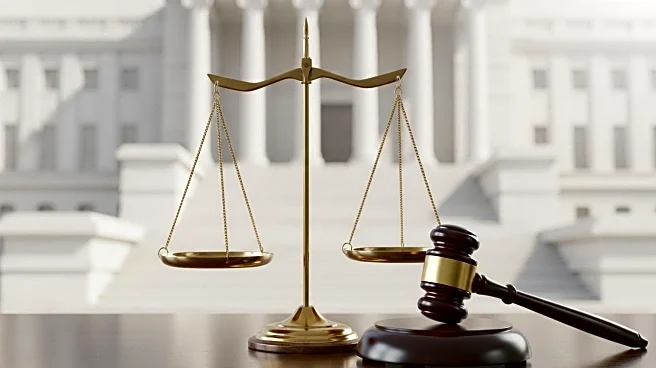What's Happening?
Attorney General Pam Bondi's recent comments on targeting 'hate speech' have sparked controversy and criticism, as they appear to conflict with established Supreme Court precedents. Bondi's remarks, made in the context of the assassination of conservative activist Charlie Kirk, suggested a distinction between free speech and hate speech, which the Supreme Court has consistently rejected. The Court has upheld that what some may consider 'hate speech' is protected under the First Amendment. Notable cases, such as Snyder v. Phelps, have reinforced the protection of even hurtful speech to ensure public debate is not stifled. Bondi's subsequent clarification focused on 'threats of violence,' but legal experts argue that the Supreme Court's interpretation of such exceptions is exceedingly narrow.
Why It's Important?
The issue highlights the ongoing tension between free speech rights and efforts to curb speech perceived as harmful or inciting violence. The Supreme Court's steadfast protection of free speech, even when offensive, underscores the challenge of balancing these rights with public safety concerns. Bondi's stance, if pursued, could lead to legal challenges and further debate on the limits of free speech. The administration's approach may also reflect broader political strategies to address dissent and criticism, potentially impacting civil liberties and public discourse. The outcome of this debate could influence future legal interpretations and policy decisions regarding free speech and hate speech in the U.S.
What's Next?
The administration may face legal challenges if it attempts to prosecute individuals based on Bondi's statements. The Supreme Court is likely to remain a key arbiter in any legal disputes arising from attempts to redefine or limit free speech protections. Public and political reactions could shape the administration's approach, with potential implications for civil rights advocacy and legislative efforts. The discourse may also influence how private companies handle employee speech, particularly in politically charged contexts.
Beyond the Headlines
The controversy raises questions about the ethical and legal boundaries of government intervention in free speech. It also highlights the cultural and political divides over what constitutes acceptable speech in a democratic society. The administration's actions could set precedents for how future governments address similar issues, potentially affecting the balance between security and freedom in the U.S.










